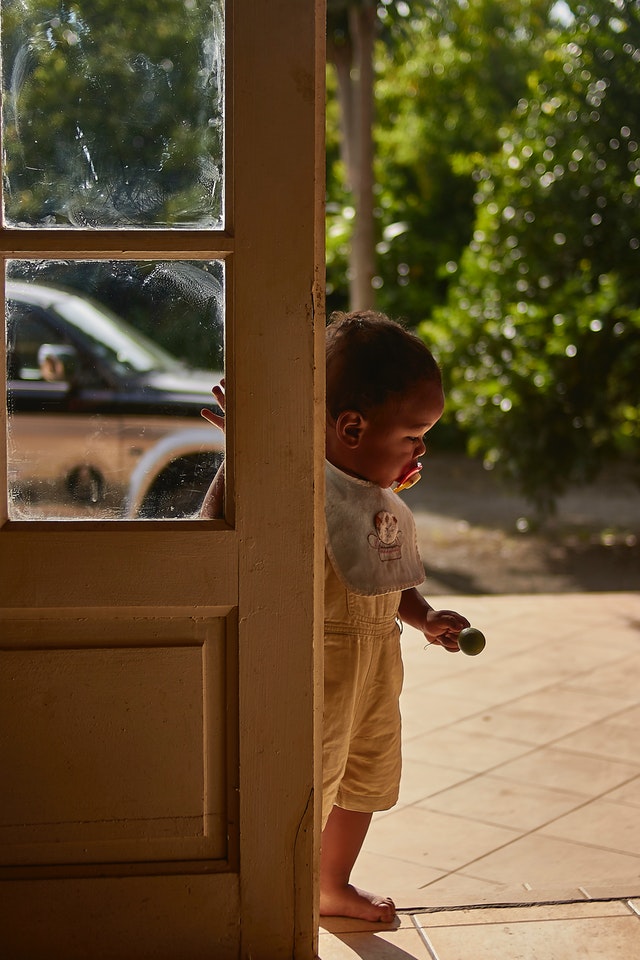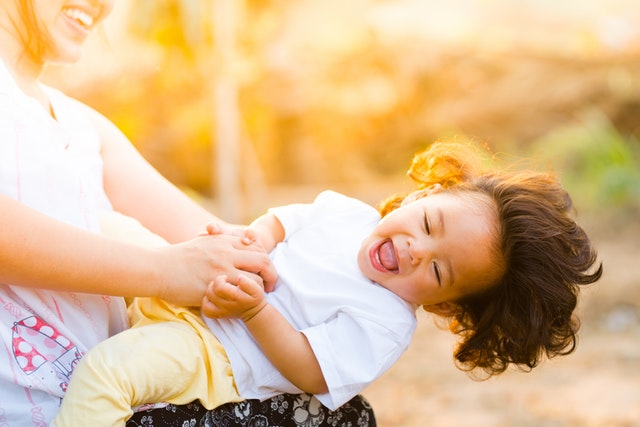 If you haven’t heard by now, Serena—you know tennis legend, Serena, has partnered with Pampers in celebration of her “wild child.” I saw the stories on Facebook and clicked one of them. I was happy to read a story about a mom who isn’t trying to stifle her little girl. She isn’t trying to get her to sit quietly and play. On the contrary. Serena is encouraging her daughter’s sense of exploration and engagement with the world around her.
If you haven’t heard by now, Serena—you know tennis legend, Serena, has partnered with Pampers in celebration of her “wild child.” I saw the stories on Facebook and clicked one of them. I was happy to read a story about a mom who isn’t trying to stifle her little girl. She isn’t trying to get her to sit quietly and play. On the contrary. Serena is encouraging her daughter’s sense of exploration and engagement with the world around her.
Having a “wild child” used to be seen as a bad thing. It meant you had a child you couldn’t control, who wouldn’t conform, who was eager to do. What it really meant was that as a parent you had to always be on your toes. Leaving a “wild child” with a phone or tablet for entertainment does not buy a parent a whole lot of time. The “wild child” is oftentimes off looking for the next adventure (that’s code for something else to get in to).
I thought about this “wild child.”
I listened and read the words Serena used to describe her little girl.
“Curious.”
“Spirited.”
“Energetic.”
“Inquisitive.”
Baby Olympia is free to roam and explore while her parents carefully watch over and let her explore.
For some reason though, as much as I was glad to read the story, I was also saddened.
Baby Olympia has two great parents keeping a watchful eye on all of her explorations, and who are fully content to let her be. They are whole enough or they have the mental and emotional capacity to allow “wild child” behavior. Some parents do not.
What Trauma Does to a “Wild Child”
Unfortunately, bad stuff—traumatic stuff happens to kids and it can affect their curiosity. Their spirit. Their energy. Their inquisitiveness. It can affect how they see the world and themselves and some kids withdraw. For some kids, this withdrawing is the death of all those wonderful qualities. They then become reserved, cautious, and even self-loathing. And they turn into adults who are ruled by fear, battle low self-esteem, and anger, bitterness and negativity oozes out of every pore of their body. This trauma absolutely influences how they show up in the world.
The child who has had their sense of safety, security, and protection breached need to be reassured that everything is okay. That they’re okay. Because the last thing you want is for a six-year-old to process a traumatic event on their own. I personally hate the phrase used in traumatic situations, “oh, kids are resilient…they’ll bounce back.” How do you know that? And do you know what these kids are telling themselves in order to bounce back?
It’s not uncommon for kids of divorced parents to think that it was somehow their fault.
Kids who were abused physically or otherwise often believe that the abuse was their fault.
Kids who lose a loved-one may believe that the loss is their fault.
Restoring The “Wild Child”
We can’t forget to make time and space for children who have experienced traumatic events. We can’t shrug it off and resort to the cliches, “they’re resilient” or “they’ll get over it.” Worse yet is to have an adult think that what the child experienced was no big deal. Especially if the event is one the parent experienced and hasn’t dealt with or healed from. They can’t even begin to deal with what happened to the child because they haven’t dealt with what happened to them.
In these moments, it’s important to help the child process what happened. That means listening. That means reassuring them that they’re okay. That means helping to create OR REMOVE them from certain environments. Creating a safe environment where they can begin to explore and imagine again is the beginning of restoring the “wild child.”
Now I know, there are a handful of us who do not have Serena and her billionaire husband’s lifestyle. I get that.
This level of parenting and involvement can seem absurd and unattainable to the single parent working two or three jobs.
Restoring “wild children” in these instances is not much of a priority when rent needs to be paid and the car is barely running.
I get that.
But I can guarantee you that listening goes a long way. And I can promise you that reaffirming children goes even further.
Unearth Your “Wild Child”
To the adult living with a buried inner “wild child.”
I’m sorry.
I’m sorry that your ability to roam free, be curious, and explore was cut short.
I’m sorry that you’re not able to show up in the world as your glorious, bold and vivacious self.
My hope and prayer for you is that you begin to do the work to unearth him or her. Even if that means finding a counselor, spiritual mentor … find someone who can help you begin the healing process so that you can show up and start living your life to the absolute fullest.
Here’s to the “wild child” in us all.
May your sense of innocence, wonder and joy return.
Lisa N. Alexander is the author and founder of This Woman Knows and What Million-Dollar Brands Know. She is an award-winning filmmaker, director, producer, and writer and is the owner of PrettyWork Creative.






